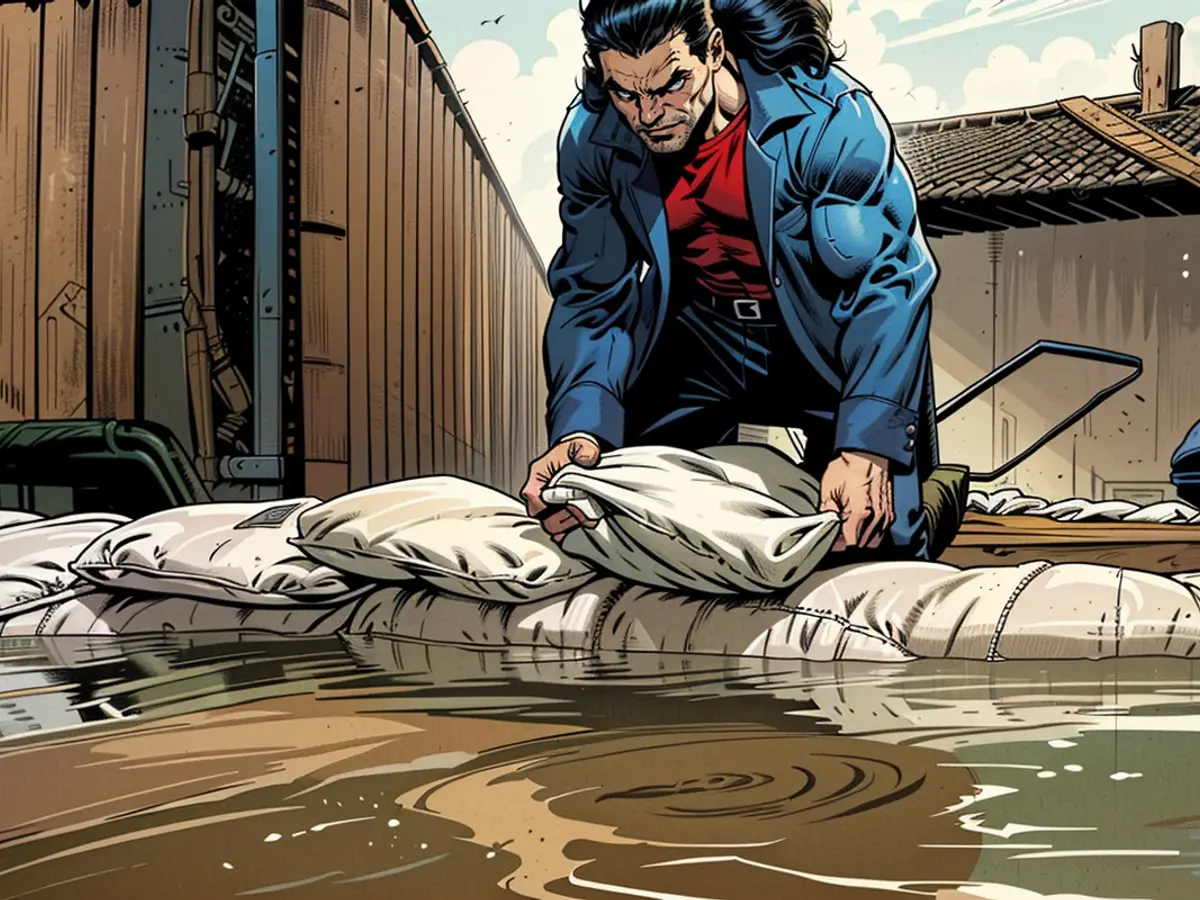Tips from disaster protectors - How do I prepare for flood and what do I do when the flood comes?
Thunderstorms, storms, heavy rain – floods are a recurring threat in this region, posing danger to both human life and property. Floods often occur differently than expected, their consequences can be severe and affect those involved for years.
Preparation – being well-equipped for the flood
Firstly, it's important to understand how a flood or persistent heavy rain could affect you. Is your residence at risk? In which scenario could your house or apartment be flooded?
Potentially affected individuals should consider if they need to evacuate vulnerable family members and where to go, as well as pets. What to do if phone and mobile networks are down? It can be useful to discuss with neighbors how to communicate in an emergency and who will take on which tasks.
You can check if a flood is imminent through the Nina warning app and the local flood centers. Their websites are linked below.
If a flood is expected, those affected should have sandbags or waterproof plywood boards. Chemicals should be stored where the flood cannot reach them, as well as computers or valuable items. A supply of food and drinking water should also be available. In an emergency, a hand-crank radio or battery-operated radio can be useful, as well as flashlights, a camping stove, and a camping toilet. For evacuation, prepare an emergency kit and don't forget important documents.
The flood is here – what to do now
It's important to act carefully, think about possible dangers, ensure children's safety, and seal off rooms that could flood. Remember not to put yourself in danger.
Basement rooms that could flood should be cleared. However, be cautious: staying in a basement during a flood can be life-threatening. Electricity is also dangerous – it's better to turn everything off if necessary. The risk of electric shock is high when water enters the house.
Cars should be moved out of the danger zone in time. Again, be cautious in underground garages; they can fill up and become deadly traps. Driving through flooded streets can cause significant vehicle damage. In disaster situations, follow the instructions of emergency services.
The flood recedes – now it's time to clean up and document
The extent of the damage can often only be assessed gradually as the floodwaters recede. Acting carefully and systematically can help limit the damage.
If it's necessary to pump water out of the house, timing is crucial. Start only when the groundwater has sufficiently subsided. Pumping too early can cause damage to the house.
For insurance purposes, it's useful to take photos and document damage accurately.
If the water and mud are out of the house, the rooms should be dried as quickly as possible. This can be done with special heaters that can be rented. Quick drying is important to prevent damage and mold.
However, for safety, the heating oil tanks, electricity, and possibly the building's statics should also be professionally inspected.
And finally, food that was in the water or fruits and vegetables from flooded areas are no longer edible. Authorities, such as the district office or the agricultural office, should be informed about gardens contaminated with hazardous substances.
After assessing the risk to your residence in Germany, you might need to consider evacuating if a flood is imminent in your area. During a flood in Germany, it's crucial to move your vehicles out of the danger zone to avoid significant damage.






